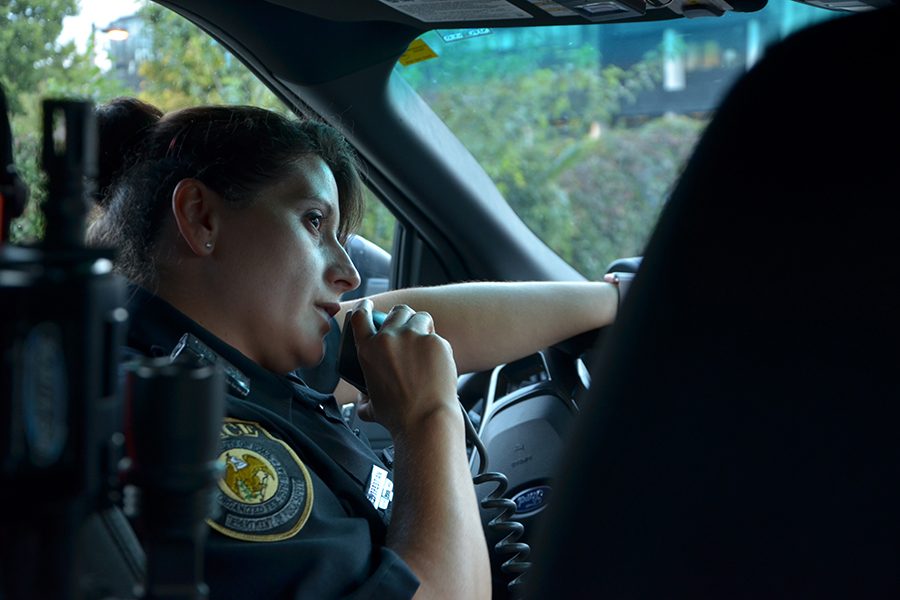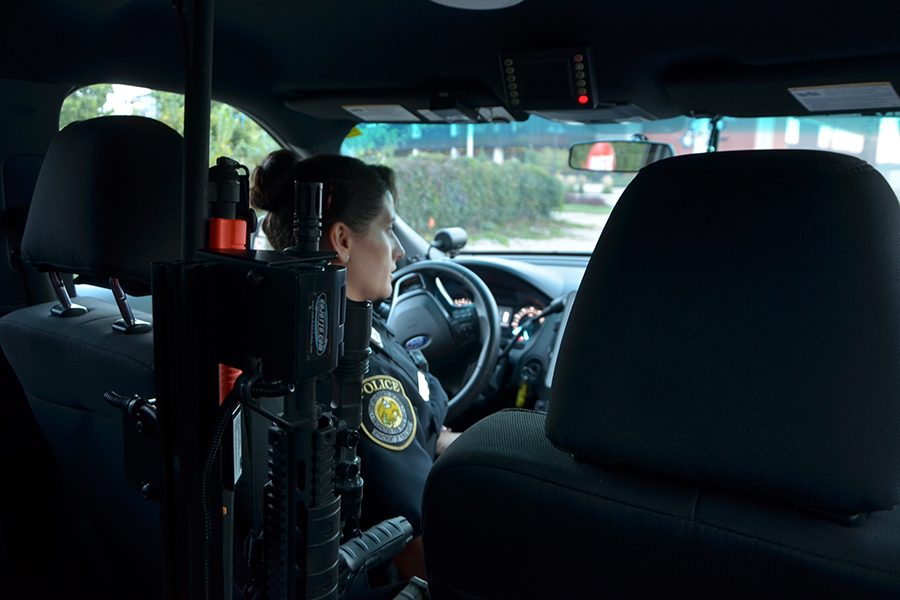Ride along with an officer
When my phone got stolen at Lake Macbride this summer, I called the University of Iowa police to come help me out. After that interaction, I became curious as to what it was like to be an officer in the United States today. On Sept. 15, I got the opportunity to ride along with Officer Sanda Trestian at the University of Iowa Police Department (UIPD). Here’s my first person account of what it was like.
7 p.m.
Upon arriving at the station, Alyson Kuennen, who is the photographer for this story, and I read the homemade signs that covered the door to the conference room.
“I don’t get worried when you guys are driving around because I know you are going to keep everybody safe,” one of the signs read. Written by elementary school children, these encouraging signs set the tone for the room.
We debriefed with Trestian and watched her document a report that involved a car being hit in a parking lot. Right away, I was surprised at how much of police work involved data entry.
8 p.m.
The first question Trestian asked us as we got settled was if we were hungry. After both of us replied with a shrug and a “Sure…” we headed up to the Chipotle with two other officers and got our meals.
As the Jets beat the Bills on the flat screen T.V in the conference room at the station, we ate and experienced first hand the camaraderie between the officers.
The dinner conversation turned to something I had never thought about in my life. The officers began discussing different instances where their food was tampered with, generally because they had a previous negative encounter with someone in the kitchen. At an iconic restaurant downtown, the officers were served ice-cold bleach instead of water.
We got a full tour of the police station, and ended up at dispatch. There, you could see almost every street in downtown Iowa City illuminated on big screens. The UIPD has access to 1,800 cameras across town, and can zoom in close enough to see license plates. At dispatch, they can also speak through the tornado siren to make Hawk Alert announcements. Any 911 calls reported in the UIPD jurisdiction are directed here.
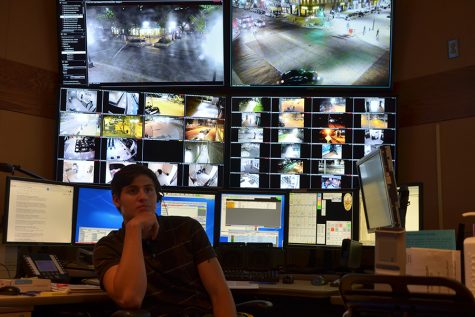
8:40 p.m.
Around 8:30, a Blue Cap was pressed. Around campus, Blue Caps were installed as a way for people to call for help immediately with just the press of the button. Unfortunately, more often than not these blue caps are pressed as a prank. Although this may be the case, the station treats each call as if someone were in need of help. We hopped in the car and went to check out the situation; which was in a tunnel under the Roy J. and Lucille A. Carver College of Medicine. There was no one in need of help, and we headed back to make it for roll call. Roll call is where officers are debriefed for their shift, which began at 9 p.m.
On the way back to the station, we began to talk about what being a woman in law enforcement was like.
“It’s hard for [men] sometimes to accept as equals, but that also depends on the maturity level of the person that you’re working with and the experience that they have,” she said. “This job is all about respect. As long as you all respect each other, everything kind of works out.”
We pulled into the garage of the station as two other officers were walking in.
“A lot of people always say police work is 95 percent boredom and 5 percent sheer terror,” one of the officers said.
“One percent terror,” the other corrected him.
Trestian and I continued talking, and got onto the issue of how being an officer has changed in recent years.
“I can see the difference in how people are watching everything, recording everything,” she said. “You constantly feel like you’re under a microscope. People are trying to find a small mistake you make and hold it against you.”
Still sitting in the garage, we were interrupted by a tap from one of the officers at our window.
“That burrito made me tired,” he said.
9:10 p.m.
Although we were late for roll call, we weren’t the only ones. Another officer was having uniform issues, which caused all of his colleagues to make fun of him and question whether or not he was truly having “uniform issues.” After roll call, we bounced back in the car and set out for what would be three more hours in the car.
Trestian pulled a girl over for making an illegal turn outside of Rienow Residence Hall, and inside the squad car we had the ability to listen through Trestian’s body camera and watch through the dash camera; which are always rolling when the sirens go off.
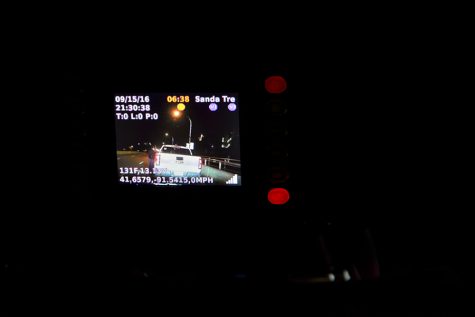
For the rest of the night, we drove around the west side of the river and listened to stories Trestian had accumulated throughout her years in law enforcement. After moving to Iowa, she studied marketing and international business. Although she had dreamt about getting into law enforcement when she was younger, for a while she had given up that it was possible.
“I ended up riding along with a friend of mine, and I got the bug,” she said. “Coming to work every day not knowing what you’re going to have, it fits me.”
Your donation will support the student journalists of West High School. Your contribution will allow us to purchase Scholarship Yearbooks, newsroom equipment and cover our annual website hosting costs.
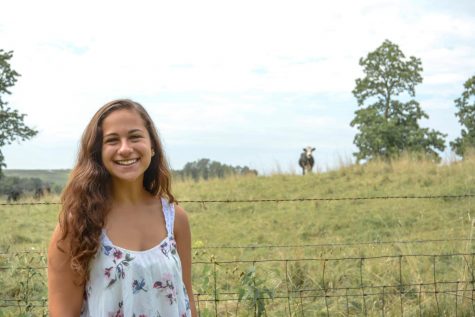
Nina Elkadi is a senior at West and a third-year staffer. She is the Print Editor-in-Chief this year and would like to thank Kanye West for helping her...
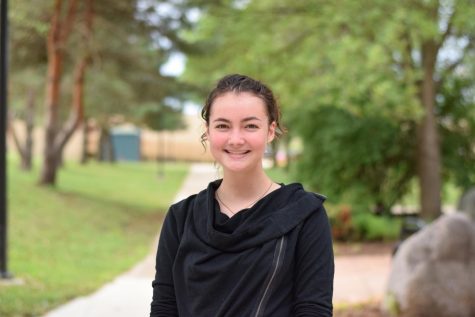
This is Alyson's second year on staff where she is a news editor and photographer. As a senior she spends her time working, working and...


